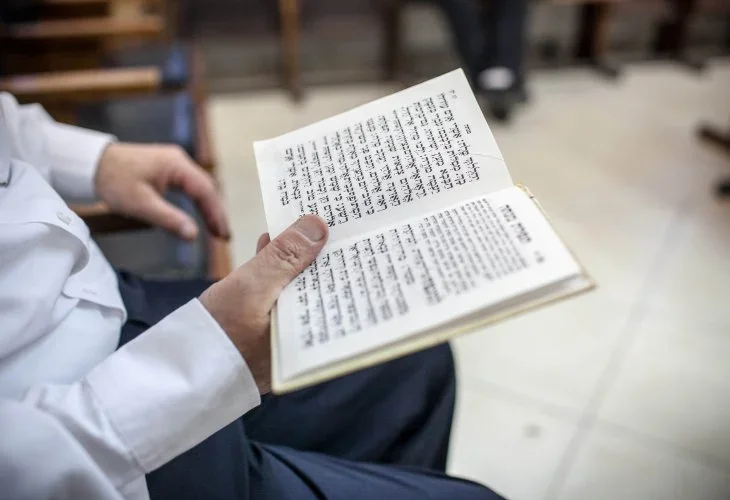Facts in Judaism
The Hidden Power of Mincha
Why is the Mincha prayer considered a "time of favor"? Who initiated this prayer? 10 things you never knew about the afternoon prayer service.
 (Photo: shutterstock)
(Photo: shutterstock)1. The Mincha prayer was established by Yitzchak, as it is written: "And Yitzchak went out to meditate in the field" (Bereishit 24:63). In this context, meditation refers to prayer.
2. The Mincha prayer corresponds with the Tamid offering, which was sacrificed during the afternoon hours.
3. The Talmud in Berachot emphasizes the importance of the Mincha prayer: "Rabbi Chelbo said in the name of Rav Huna: A person should always be careful with the Mincha prayer, for Eliyahu was answered only during the Mincha prayer." (Berachot 6b)
4. The dramatic episode of Eliyahu on Mount Carmel is described in detail in Melachim I. Eliyahu challenges the prophets of Baal, and at Mincha time, he prays to Hashem, and fire descends from heaven in response (Melachim I 18). The Sages derive from this that Mincha time is an et ratzon, a moment of special Divine favor, when prayers are more readily accepted by Hashem. Accordingly, one should be careful not to miss this precious time of prayer.
5. The Mincha prayer is also special because it is recited in the middle of the day, and a person interrupts his daily routine for prayer. This differs from the morning (Shacharit) and evening (Maariv) prayers, which are recited at the bookends of the day.
The Tur (232) explains: "The reason the Mincha prayer is so important is because the time for the morning prayer is known - in the morning when one rises from bed, one prays immediately before becoming busy with his daily affairs. Similarly, the evening prayer has a known time - when one returns home and is free from work. But the Mincha prayer occurs while the day still stretches ahead and one is busy with work, and one needs to set his heart and turn away from all his affairs to pray. For this reason, its reward is very great."
6. The Shulchan Aruch explains that one should wash his hands before the Mincha prayer, just like he washes his hands before other prayers.
7. The Rambam explains that the time for the Mincha prayer corresponds to the time of the afternoon Tamid offering: "Since the Tamid was offered every day at nine and a half hours, they established its time from nine and a half hours, which is called Mincha Ketana. And since when the eve of Pesach falls on Friday, they would slaughter the Tamid at six and a half hours, they said that one who prays after six and a half hours has fulfilled his obligation, and from this time the obligation begins, and this is called Mincha Gedola." In other words, Mincha Ketana is near the end of the day, adjacent to sunset, while Mincha Gedola is when the majority of the afternoon still stretches ahead.
8. The Mishnah in Tractate Shabbat states: "A person should not sit before a barber close to Mincha time until he has prayed. A person should not enter a bathhouse, nor a tannery, nor eat, nor begin a trial." (Shabbat 9b)
9. Before the Mincha prayer, it is good to say: "I thank You, Hashem, my God and the God of my fathers, that just as I merited to see the sun in the east, so You have given me merit to see it in the west."
10. Prayer shouldn't be reserved for times of crisis. The book "Be'er Moshe" on Parshat Eikev explains that "in every matter, small or great, a person should offer prayer. Not only when a person needs great salvation should they lift their eyes in prayer to heaven, but in every small or great matter, they must know that without His blessed help, they will not succeed in anything."

